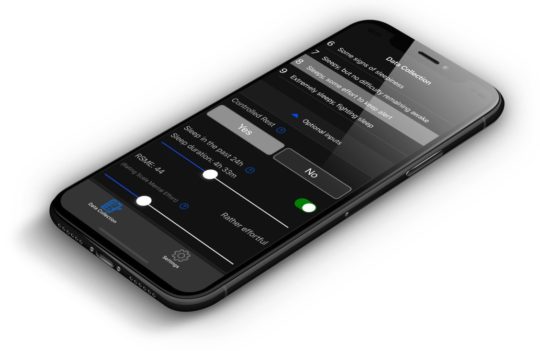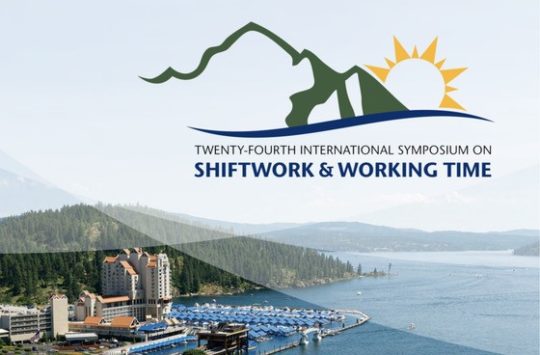
FRM News Flash – September 2019
Air Europa Improves Planning Capabilities

Air Europa, headquartered on the beautiful island of Majorca in Spain, has acquired Jeppesen Crew Pairing, Rostering, Bid and the Boeing Alertness Model for their crew management processes. Air Europa is a member of Skyteam with over 4000 employees, operating 60 aircrafts in a network of 70 destinations and is transporting 13 million passengers annually.
”Our engagement with Jeppesen started from the perspective of improving the crew influence on their rosters as well as a number of aspects relating to fair-share and quality”, says Andrés Bello, Chief Operating Officer at Air Europa. “We then quickly learned, by using Jeppesen’s optimization technology to address our quite complex planning problem, that we could simultaneously reduce over-time pay, and costs for layovers and positioning, whilst also improving the robustness in our planning.”
Silvia Liebrecht, Sales Director at Jeppesen, adds: “Engaging with the highly competent staff at Air Europa has been a true pleasure. A key factor behind the successful results is the open dialogue and willingness to implement change. We are proud and humbled by the trust placed in us by Air Europa, who now join the family of operators using mathematics in pursuit of excellence in crew planning.”
Please find here more information about Jeppesen Crew Solutions and the Boeing Alertness Model.
Goodbye few-and-far-between Fatigue Reports…

…and welcome to a new efficient and secure way of continuously receiving crew fatigue risk feedback!
Crew fatigue reporting was, by ICAO and regulators intended, to be an instrument for operators to gauge and assess the crews’ experienced fatigue levels. Fatigue reports were meant to be something of a foundation for a data-driven statistical approach in an FRMS. Reality is, for most airlines, that fatigue reports are too ‘few and far between’ to support well-founded conclusions and actions. They normally don’t gauge the risk development over time in a good way due to poor representativeness of the reports. And without any ‘alertness reports’ to balance against, little is learned and subsequently actioned on from the few data points received. The reports often do a better job explaining outliers, than reflecting the overall structure and trends in the operation.
At the same time, traditional ‘proper’ fully-fledged fatigue data collections have been found to be overly expensive and time consuming, involving a lot of logistics distributing the hardware and material needed. This has resulted in these collections only being done occasionally, and as a result producing limited data.
For progressive operators that really would like to know what is going on in their operation, there is now a new efficient platform for doing so. Jeppesen has, in collaboration with airline partners, extended the Concert platform with an extremely quick and easy way for crew to provide KSS assessments on a frequent basis – even continuously. The brand new CrewAlert TOD app (‘TOD’ for Top Of Descent) is an app with a minimal learning curve, that collects KSS assessments at any time during working hours, together with supplementary optional information on prior sleep and mental effort. The data is placed in a secure storage available for statistical analysis, side-by-side with the roster information that is added automatically. The result is a powerful business intelligence solution with planned/published/flown pairings and rosters with predictions from BAM, and now also the experienced actuals from the crew – all available in a consolidated way for easy monitoring, analysis and follow-up.
CrewAlert TOD becomes available on Appstore and the Google Play Store in most countries during October. Please contact us to learn more and line up for a data collection that makes a real difference.
Shiftwork 2019 in Coeur d’Alene

The 24th International Symposium on Shiftwork & Working Time (Shiftwork2019) in Coeur d’Alene, Idaho, USA, attended by many leading scientists in the field, just concluded last week and was a great success. It was also the 50th anniversary of the very first gathering, which took place back in 1969.
After an initial Industry Day at Washington State University on Monday, four intense days followed with some 70 presentations, and over 100 science posters on display. Via this link you can catch up with some 75 pages of abstracts elaborating on many interesting research problems, methods and results in the domain of sleep and fatigue. Enjoy.
Short of Meaningful SPIs?

Defining meaningful safety performance indicators for fatigue risk in the crew management process is far from easy. The available metrics are typically block and duty hours developed for governing and producing legal and efficient rosters. Productivity numbers, monthly block hours and even ’distance’ to regulatory limits explains very little, if anything, about an operators fatigue risk exposure. Fatigue reports do, but they are reactive and often ’few and far between’.
A typical operator has a lot of KPIs available that reflect the overall performance of the crew scheduling process, as well as metrics for each crew. Examples include productivity, block hours per month etc. Unfortunately, very few of these are suitable as SPIs within the context of a FRMS. What is really needed are metrics reflecting the immediate context leading into the flights. Think about it: the fatigue associated with an individual flight is not necessarily worse because of 90 block hours that month, compared to just 80. Next time you look at defining good SPIs – take a look at this document explaining the rationale behind ‘ACPIs’: Alertness Centric Performance Indicators. We think you will find them much more meaningful.
Meet up with the Jeppesen experts:
SEP 19: 2019 FRM Conference Taiwan, Taipei
SEP 30: AGIFORS Annual Symposium hosted by Boeing, Seattle
OCT 1-2: FRMS Forum, San Fransisco
OCT 8-9: FRM Training Course, Gothenburg
OCT 21-24: Jeppesen Users Conference, Dubai
NOV 20-21: FRM Training Course, Montreal
MAR 16-19: Managing Fatigue 2020, Freemantle
Air Europa Improves Planning Capabilities

Air Europa, headquartered on the beautiful island of Majorca in Spain, has acquired Jeppesen Crew Pairing, Rostering, Bid and the Boeing Alertness Model for their crew management processes. Air Europa is a member of Skyteam with over 4000 employees, operating 60 aircrafts in a network of 70 destinations and is transporting 13 million passengers annually.
”Our engagement with Jeppesen started from the perspective of improving the crew influence on their rosters as well as a number of aspects relating to fair-share and quality”, says Andrés Bello, Chief Operating Officer at Air Europa. “We then quickly learned, by using Jeppesen’s optimization technology to address our quite complex planning problem, that we could simultaneously reduce over-time pay, and costs for layovers and positioning, whilst also improving the robustness in our planning.”
Silvia Liebrecht, Sales Director at Jeppesen, adds: “Engaging with the highly competent staff at Air Europa has been a true pleasure. A key factor behind the successful results is the open dialogue and willingness to implement change. We are proud and humbled by the trust placed in us by Air Europa, who now join the family of operators using mathematics in pursuit of excellence in crew planning.”
Please find here more information about Jeppesen Crew Solutions and the Boeing Alertness Model.
Goodbye few-and-far-between Fatigue Reports…

…and welcome to a new efficient and secure way of continuously receiving crew fatigue risk feedback!
Crew fatigue reporting was, by ICAO and regulators intended, to be an instrument for operators to gauge and assess the crews’ experienced fatigue levels. Fatigue reports were meant to be something of a foundation for a data-driven statistical approach in an FRMS. Reality is, for most airlines, that fatigue reports are too ‘few and far between’ to support well-founded conclusions and actions. They normally don’t gauge the risk development over time in a good way due to poor representativeness of the reports. And without any ‘alertness reports’ to balance against, little is learned and subsequently actioned on from the few data points received. The reports often do a better job explaining outliers, than reflecting the overall structure and trends in the operation.
At the same time, traditional ‘proper’ fully-fledged fatigue data collections have been found to be overly expensive and time consuming, involving a lot of logistics distributing the hardware and material needed. This has resulted in these collections only being done occasionally, and as a result producing limited data.
For progressive operators that really would like to know what is going on in their operation, there is now a new efficient platform for doing so. Jeppesen has, in collaboration with airline partners, extended the Concert platform with an extremely quick and easy way for crew to provide KSS assessments on a frequent basis – even continuously. The brand new CrewAlert TOD app (‘TOD’ for Top Of Descent) is an app with a minimal learning curve, that collects KSS assessments at any time during working hours, together with supplementary optional information on prior sleep and mental effort. The data is placed in a secure storage available for statistical analysis, side-by-side with the roster information that is added automatically. The result is a powerful business intelligence solution with planned/published/flown pairings and rosters with predictions from BAM, and now also the experienced actuals from the crew – all available in a consolidated way for easy monitoring, analysis and follow-up.
CrewAlert TOD becomes available on Appstore and the Google Play Store in most countries during October. Please contact us to learn more and line up for a data collection that makes a real difference.
Shiftwork 2019 in Coeur d’Alene

The 24th International Symposium on Shiftwork & Working Time (Shiftwork2019) in Coeur d’Alene, Idaho, USA, attended by many leading scientists in the field, just concluded last week and was a great success. It was also the 50th anniversary of the very first gathering, which took place back in 1969.
After an initial Industry Day at Washington State University on Monday, four intense days followed with some 70 presentations, and over 100 science posters on display. Via this link you can catch up with some 75 pages of abstracts elaborating on many interesting research problems, methods and results in the domain of sleep and fatigue. Enjoy.
Short of Meaningful SPIs?

Defining meaningful safety performance indicators for fatigue risk in the crew management process is far from easy. The available metrics are typically block and duty hours developed for governing and producing legal and efficient rosters. Productivity numbers, monthly block hours and even ’distance’ to regulatory limits explains very little, if anything, about an operators fatigue risk exposure. Fatigue reports do, but they are reactive and often ’few and far between’.
A typical operator has a lot of KPIs available that reflect the overall performance of the crew scheduling process, as well as metrics for each crew. Examples include productivity, block hours per month etc. Unfortunately, very few of these are suitable as SPIs within the context of a FRMS. What is really needed are metrics reflecting the immediate context leading into the flights. Think about it: the fatigue associated with an individual flight is not necessarily worse because of 90 block hours that month, compared to just 80. Next time you look at defining good SPIs – take a look at this document explaining the rationale behind ‘ACPIs’: Alertness Centric Performance Indicators. We think you will find them much more meaningful.
Meet up with the Jeppesen experts:
SEP 19: 2019 FRM Conference Taiwan, Taipei
SEP 30: AGIFORS Annual Symposium hosted by Boeing, Seattle
OCT 1-2: FRMS Forum, San Fransisco
OCT 8-9: FRM Training Course, Gothenburg
OCT 21-24: Jeppesen Users Conference, Dubai
NOV 20-21: FRM Training Course, Montreal
MAR 16-19: Managing Fatigue 2020, Freemantle